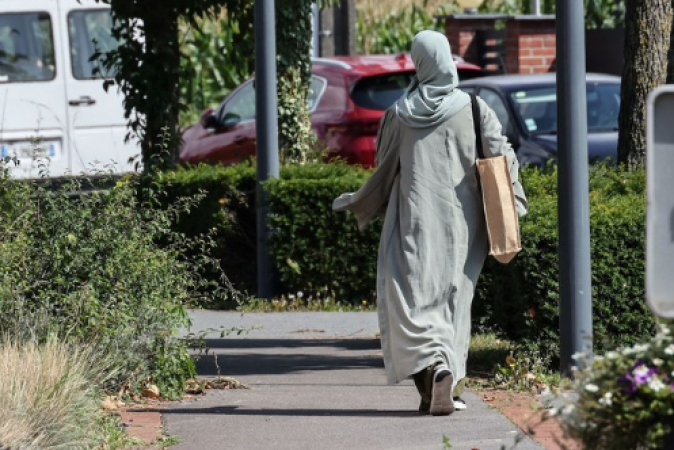
(Paris, France) - France's highest court has issued a ruling endorsing a school ban on the abaya, a traditional Muslim dress. The court's decision, delivered on Wednesday, represents a significant victory for the French government, which has been steadfast in its efforts to restrict religious symbols in public educational institutions.
The case that led to this decision involved a Muslim student who faced expulsion from school due to her choice of attire—an abaya, a flowing, full-body covering garment. The student contended that the ban infringed upon her religious freedom, but the court ultimately disagreed with her argument.
In its ruling, the court held that the school's prohibition on the abaya was not in violation of religious freedom. It determined that the school had a legitimate interest in upholding secularism and that the ban represented a proportional means of achieving that objective. Additionally, the court noted that the student retained the ability to express her religious beliefs through other means, such as wearing a headscarf.
Also Read: Russia and Bangladesh Forge Partnership to Overcome Hurdles in Rooppur Nuclear Power Plant Project
The court's decision is poised to be embraced by the French government, which has faced pressure from far-right factions to outlaw all religious symbols in public schools. However, it is also expected to draw criticism from human rights organizations, contending that it curtails religious freedom.
The prohibition of the abaya aligns with a broader pattern in France of clamping down on religious symbols in public spaces. In 2004, the French government implemented a ban on headscarves in public schools, followed by a ban on the niqab, a full-face veil, in public settings in 2010.
The French government's argument in favor of these bans rests on the premise that they are indispensable to safeguard secularism and to promote gender equality. Nevertheless, detractors argue that the prohibitions are discriminatory and encroach upon the fundamental right to religious freedom.
The decision by France's highest court is likely to reignite the ongoing debate concerning religious symbols in the country. The enforcement of the abaya ban remains to be seen, and public reception of the court's verdict is uncertain.
Also Read: King Charles III's Reign: Balancing Tradition with Modernization
Elaboration:
Background on France's Approach to Religious Symbols: France has been grappling with the issue of religious symbols in public spaces and institutions for several years. The government has argued that these bans are essential to preserve the nation's secular identity and ensure gender equality. However, these restrictions have been the subject of extensive debate and criticism from various quarters.
The Abaya Ban Case: The recent case revolved around a Muslim student who was expelled from a French school for wearing an abaya, a long, loose-fitting garment that covers the entire body. The student claimed that her expulsion violated her religious freedom, a contention that ultimately led to the case reaching France's highest court.
Court's Rationale for the Decision: The court, in its ruling, asserted that the school's ban on the abaya did not infringe upon religious freedom. Instead, it argued that the school had a legitimate interest in upholding secularism, a cornerstone of the French state, and that the ban was a proportionate means to achieve this goal. Additionally, the court emphasized that the student retained the ability to manifest her religious beliefs through alternative means, such as wearing a headscarf.
Also Read: Saudi-Indian Relations Forge Ahead with G20 Summit as Catalyst
Broader Impact and Implications: The decision is poised to have ramifications beyond this specific case. It may embolden the French government's efforts to limit religious symbols in public educational institutions and public life more broadly. Simultaneously, it is expected to generate criticism from human rights organizations and proponents of religious freedom, reigniting the ongoing debate over the accommodation of religious practices in a secular society.
Enforcement and Public Reaction: While the decision sets a legal precedent, its practical implementation remains a matter of speculation. How schools and educational authorities choose to enforce the ban on the abaya, and the public's response to this enforcement, will be key developments to watch in the coming months.
France's Supreme Court's ruling to uphold the school ban on the abaya adds a new chapter to the country's ongoing debate over religious symbols in public life. It underscores the delicate balance between secularism, gender equality, and religious freedom, issues that continue to shape the nation's identity and societal norms.